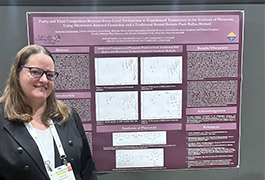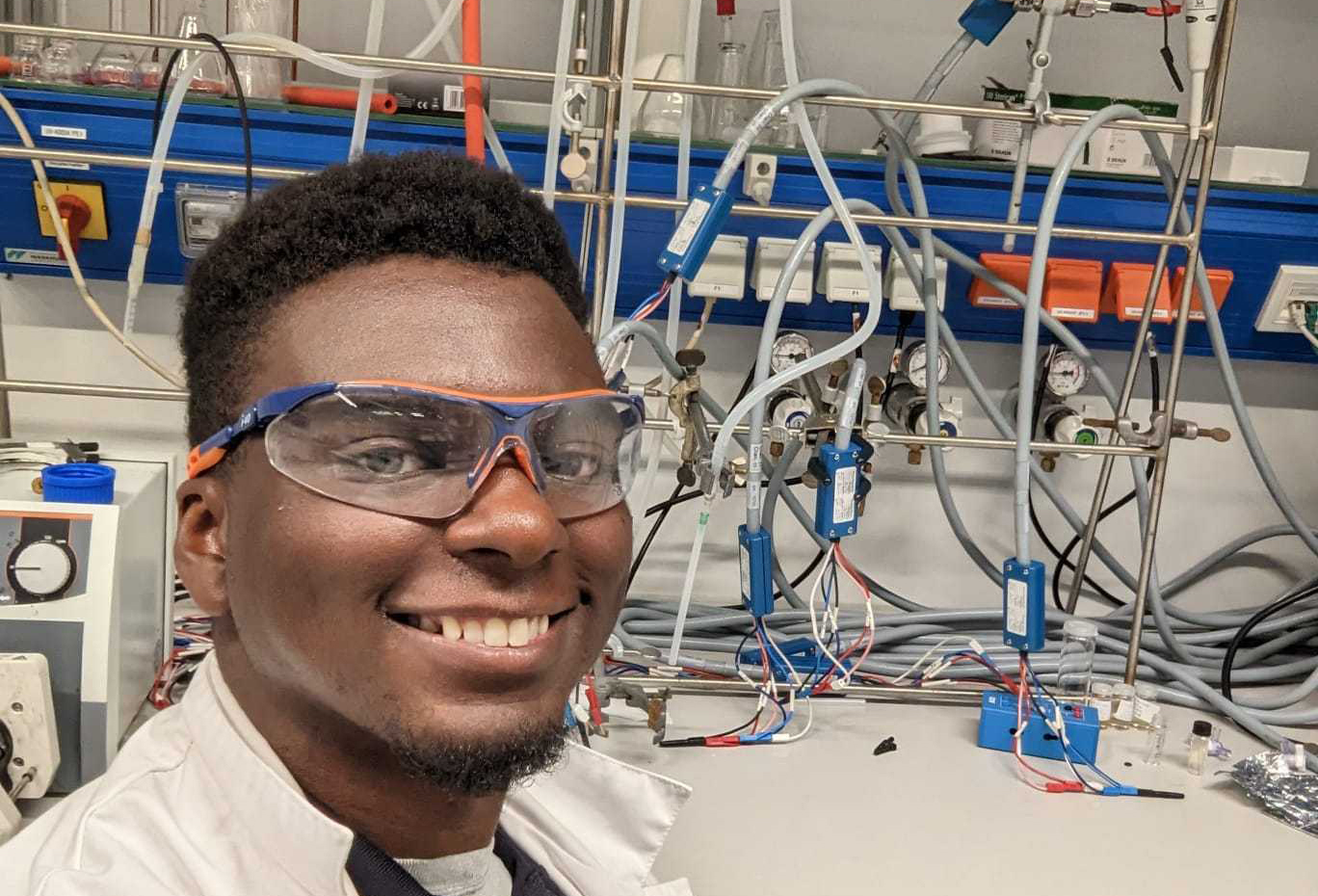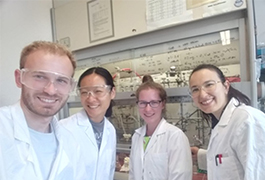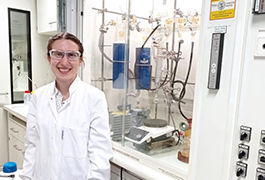Doing Undergrad Research in the Time of COVID
A cornerstone of your chemistry degree is research. COVID restrictions, however, might have delayed or canceled your previous plans to learn and apply lab techniques to research projects or begin discussions with advisors on what you want to study. You may have lost some motivation or be worried that all skill-building opportunities have vanished.
“I totally understand students being worried. I think that it's justified and rather expected,” says Samantha Mensah, a Ph.D. candidate at the University of California, Los Angeles. As an undergraduate at the University of Central Florida, Mensah earned years of experience doing nanoscience research, including summer programs at the University of California San Diego and The Sorbonne in Paris, France. She understands the value of research and mentorship, and expects employers and universities to understand the challenges facing students today. “I think that they will look at your attempts to circumvent that issue.”
The fact is you can still develop research skills during the pandemic, and we’re here to tell you how.
But first, why?
“If a student says: ‘I'm not looking for research opportunities because I don't think I'll get any,’ I say: ‘Why are you not trying?’,” says Anne Donnelly, director of the University of Florida’s Center for Undergraduate Research. Fear of failure is common, but it’s an important hurdle to overcome. You certainly won’t find new opportunities without leaving your comfort zone. Failure is just part of the process (as well as part of research).
The benefits of undergraduate research are worth the effort. “The upsides are so, so many in terms of professional development,” Donnelly says. Independent research has been shown to sharpen technical, problem-solving, and communication skills, she adds. Donnelly, who earned a Presidential Award in 2015 from President Barack Obama for her science, math, and engineering mentorship, also finds students have more fun learning chemistry with research than with class.
Regardless of whether you go on to graduate school, research helps you decide what you want to do with your life, she adds. You might not really even know what a professional chemist does until you hang out with one. Or you might find out that lab research isn’t for you. “Let's say you find out that you absolutely hate research. That's a good thing to learn before you get into graduate school, right?”
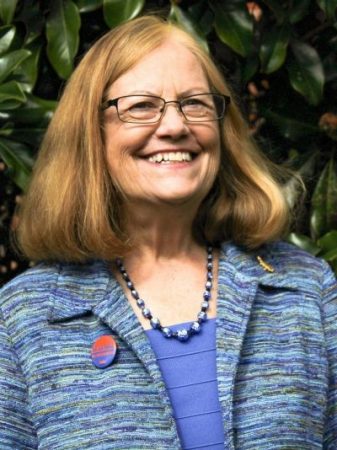
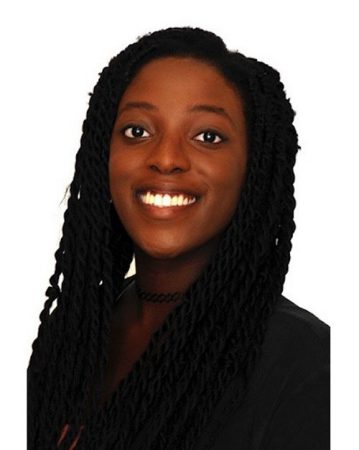
Set reasonable goals
To set goals for COVID-era research, you should reflect on why you want to do research in the first place. Maybe you’re inspired by the future of energy storage and joining a lab will teach you techniques you’ll use to study that area. Perhaps, you want to try out different fields of chemistry to figure out what you want to specialize in. Maybe you want to develop specific investigative or analytical skills such as experiment design or developing theories.
The University of Michigan’s Department of Chemistry has a list of technical and communication skills and various fields in which they apply that can help you brainstorm what you want to focus on.
Once you know the direction you want to take, reach out to professors and graduate students in your field of interest. Find out what their research specifically entails, and ask how you can contribute to experiments that build your targeted skills.
You can ask about remote opportunities even if you’re already working on a non-remote-friendly project. This sort of transition is common. After surveying 152 University of Florida undergraduates, Donnelly found, Donnelly found that 60% were still conducting research—and more than 20% of those had switched to remote projects.
Zosia Caes, a junior majoring in chemistry at Yale University, emailed 10 professors asking for an opportunity. Right away four responded “no”. Caes has been working in a chemical engineering lab doing synthetic chemistry since before the pandemic. Once the shutdowns happened, the synthesis component she loved ended. Given the new circumstances of working, “it's a lot more difficult for me, and not as fun,” she says. Since the summer, Caes has been trying to find a position more suited to her interests.
Professors have told her that labs don’t have the bandwidth to train new undergrads, especially for wet-lab research in the fall. But Caes, who hopes to complete a project for her senior thesis, is not giving up. Her advice: “If they give you a meeting, great—prepare well,” she says. “Make yourself the most informed candidate possible.”
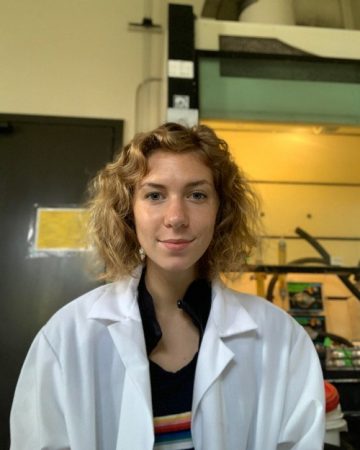
Building data literacy skills
Donnelly’s survey results show that many undergraduate students are, fortunately, continuing their research despite COVID. But for the large number of students with no lab access—or no research group—she says, “they're just going to have to be a little more creative.”
How can you learn to interpret scientific research like a scientist without lab access? One approach is to virtually shadow grad students and postdocs who are “in the lab, getting the data, and actually doing the experiments,” Mensah suggests. Working alongside others with lab access can expose you to data analysis techniques, proper experimental design, and strategies for managing inevitable surprises. And because most data are handled remotely with programs like Python, MATLAB, Excel, or niche instrument-specific software, consider offering to analyze results.
“Doing remote work was never a plan for me personally,” says Braden Carroll, a junior majoring in chemical and biological engineering at the University of Colorado, Boulder. She joined a lab in March, right before her campus shut down. Unsure whether she’d still have work in the fall, she reached out to her graduate student mentor and re-expressed her interest in contributing.
Carroll’s graduate student mentor devised a “research simulation” designed to teach her to perform research skills remotely. Her mentor gives her a task, such as growing a biofilm, and she has to read the literature to create a protocol. Once proposed methods are correct, Carroll’s mentor sends her data to analyze.
“She never really provides an answer for me. She waits until I have a question,” Carroll says. This has taught her more self-discipline, patience, how to draw her own scientific conclusions, and how to work independently. “I found this approach has really helped develop some softer skills, like finding good papers quickly and condensing that information to the parts you need.”
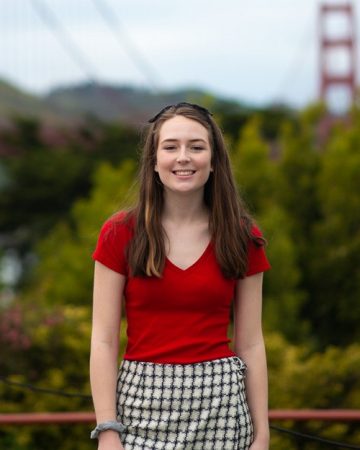
In lab courses, your experiments often have known outcomes. But in research, every step—from experimental design to testing to analysis—is a learning opportunity. Mensah recommends attending virtual group meetings to be in the loop for contributions that don’t require lab work. “That's a good space to make yourself available for things like [literature] review writing,” she says. Consider e-mailing a graduate student or mentor and asking to sit in on those meetings. Even if you can’t publish a literature review, professors may recommend that you simply read.
When reading scientific papers, take your time and take notes. Notice how the researchers design their experiment, variables, and controls. Ask yourself why a particular graph is so effective at conveying their message—or why it isn’t. Are their statistical methods and attempts to reproduce results with different conditions convincing to you? Your goal when reading scientific literature should be to learn about new science and to sharpen your critical thinking.
“I’ve been reading a lot about astrochemistry,” says Sophie Hulet, a sophomore at the University of Oregon. COVID has made it harder for them to connect with students and professors, causing anxiety over the struggle to find research positions. So Hulet reads to stay up to speed on the topics they love.
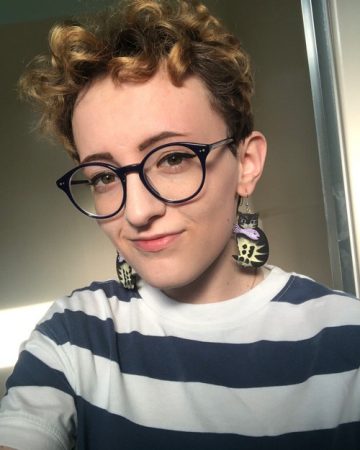
Building presentation skills
“The pandemic put an immediate stop to my research in March 2020,” says Emily Chappell, an undergrad at Mississippi State University. Soon after, her chemistry department managed to get enough funding from the National Science Foundation for 10 students to do a summer REU, including Chappell. She used the opportunity to read more scientific literature, build lab skills, and make a research poster. Chappell recently earned an award for that poster.
Even in times of social distance, plenty of presentation opportunities exist, and you can carry those skills into any classroom and workplace. For example, if your mentor asks you to read about a chemical process that may solve a difficult problem facing the lab, volunteer to present that knowledge in a group meeting. If you’re working alongside labmates and analyzing data, learn how to prepare powerful figures.
Read How to Kill Public Speaking Jitters
You can also learn by watching others present. ACS hosts local and regional meetings online, and niche subfields hold virtual conferences. Watch science TED talks or seminars uploaded to YouTube and pay attention to how researchers deliver a talk. Notice how they choose words and explanations that most resonate with their specific audience.
Donnelly also suggests attending conferences or symposia at your university. Practicing these skills on your own and in virtual meetings will solidify your understanding of the material and make you more confident in any workplace.
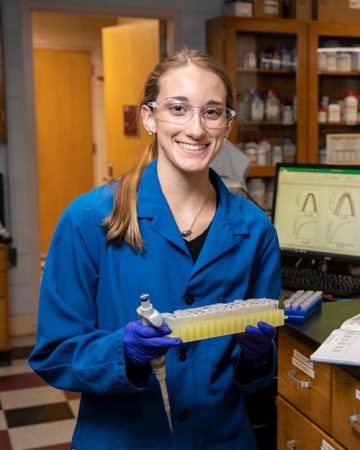
Attend classes, seminars, and workshops
Science events are another great way to build technical research skills. The pandemic has brought many educational events online that previously would have happened behind closed campus doors or at conference centers. The American Institute of Chemical Engineers posts free webinars weekly, on topics ranging from space research to virtual interview techniques. The National Institutes of Health (NIH) also keeps a running list of learning opportunities for stay-at-home scientists.
And ACS hosts free webinars twice a week. Past sessions have covered topics such as advances in solar power, plastic pollution, and tips for communicating your science. Attending these will deepen your understanding of what scientists actually study and expose you to entirely new corners of the vast world of chemistry.
“A big part of being in a lab is just networking and knowing some of the other students,” Mensah says. This year, Mensah cofounded the #BlackinChem movement on social media. The initiative amplifies Black chemists’ voices and helps build professional networks. “You need to have a group of people in your life who are going to be advocating for you while you're not in the room.”
Mensah says that her chemistry department hosts weekly seminars in physical chemistry, organic chemistry, and other topics. See if your school has something similar. If it doesn't, see if your faculty knows of other schools with open seminars. Or, better, work with your student chapter or faculty to start a series at your school.
Donnelly’s research center has hosted, and recorded, 12 workshops. Each recording shares research tips, including
- how to find a research project
- how to find a high-impact scholarship
- how to find a summer research experience
- how to do a poll
- how to do a poster
The best part: They’re freely available to anyone—not just University of Florida students. “We actually are learning how to do some things better, because not every [student] could show up for four o'clock on a Wednesday, but they can log in and look at it later if it's recorded,” Donnelly says. “I've decided that's the lemonade of the lemons of COVID.”
Many universities offer Course-based Undergraduate Research Experiences (CURE) classes. “A faculty member essentially crowdsources their research to a classroom,” Donnelly says. “They spend 75%, 80% of their time doing research, and the other 20% they're learning about skills; they're learning about presentation, communication. They're learning about ethics, that kind of stuff.” These opportunities may be available for you, even if one-on-one mentorship isn’t, so consider checking with your department.
Additionally, Donnelly says that some important lessons are actually hiding in your curriculum: “There isn’t anybody on the planet, no matter what their major, who shouldn't take basic statistics.” If you don’t have room in your schedule or want to brush up, check out free online modules from Khan Academy, Coursera, or edX.
Despite feeling the burden of these times, Hulet is encouraged by faculty going above and beyond with resources to help students keep learning. “Find ways to stay engaged and remind yourself why you love studying what you are studying; it’s extremely good motivation,” Hulet says. “Don’t let this situation dishearten you too much, because there are so many of us in the same boat.”

